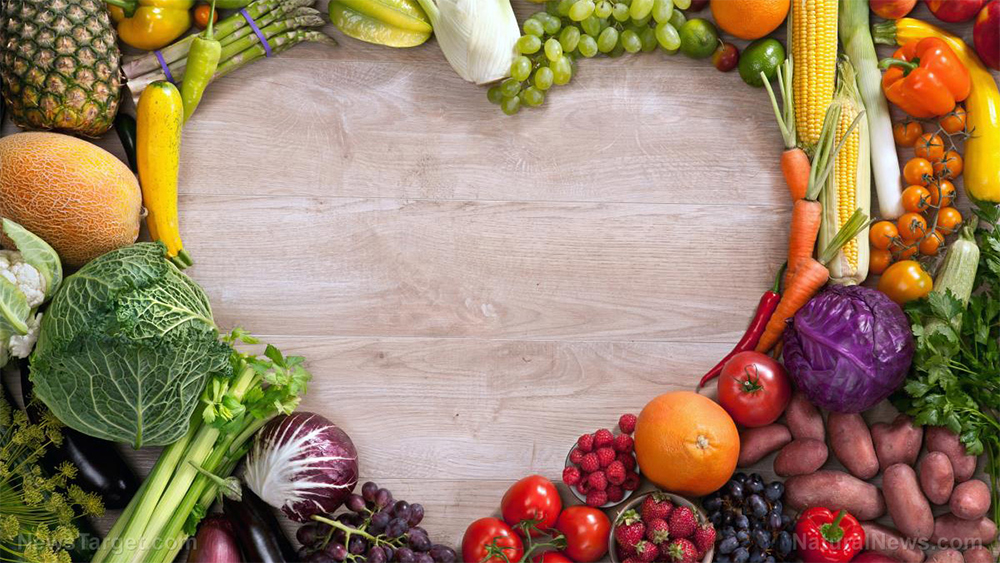by Zoey Sky
07/26/2022 – Quercetin is a flavonoid and plant pigment found in brightly-colored fruits and veggies. Many studies continue to prove its ability to help prevent heart disease and promote cardiovascular health.
Extensive population studies have revealed that people with diets rich in quercetin have low cholesterol levels and decreased incidence of heart disease and death.
Research has also shown that quercetin doesn’t just boost heart health, it also helps relieve allergies and enhances immune function.
Quercetin offers cardiovascular benefits
Quercetin is a potent antioxidant that helps reduce oxidative stress and inflammation, both of which are linked to heart disease. According to research, quercetin also helps reduce damage from experimentally-induced heart attacks.
Additionally, diets high in quercetin have been shown to protect against harmful LDL (low-density lipoprotein) cholesterol by decreasing its concentration in the blood. This, in turn, reduces the risk of heart attack and stroke because it prevents the buildup of atherosclerotic plaque in arteries.
Quercetin also helps the cardiovascular system by improving circulation and supporting healthy blood pressure. A clinical study found that taking 200 mg of quercetin every day enhances the production of beneficial nitric oxide — a chemical that relaxes blood vessels — and promotes endothelial cell function.
Quercetin boosts your immune system
Quercetin protects plants against damage from disease, harsh temperatures and chemical toxins. In studies, this translates to quercetin having potential anti-allergy, antiviral and immune-stabilizing abilities.
Quercetin can help prevent the depletion of antioxidants and protect the lungs during times of stress. It also helps prevent the spread of viruses. According to research, quercetin can significantly increase the respiratory antioxidant defense system in mice exposed to the H1N1 flu virus.
Studies have also revealed that quercetin helps block viral replication, thus reducing the ability of viruses to infect healthy cells.
Additionally, quercetin was found to boost immune defenses by helping increase the production of glutathione, the body’s master antioxidant and a crucial immune system component.
Data also suggests that quercetin may help prolong life. In a 2010 review of studies published in the journal Archives of Biochemistry and Biophysics, the authors wrote that quercetin could activate SIRT1, the “anti-aging” gene.
Quercetin helps reduce allergic reactions
Modern research is exploring the ability of quercetin to fight allergies.
Quercetin is a natural antihistamine and can help reduce allergic reactions by decreasing the activation of mast cells that release histamine and other inflammatory signals linked to allergies, asthma and skin conditions. This is why integrative healthcare providers often recommend quercetin to relieve hives, a runny nose, sinus congestion, sneezing, watery eyes and other cold and allergy symptoms.
Because of quercetin’s impressive ability to inhibit mast cells, researchers are investigating its potential to block fatal anaphylactic reactions like those caused by peanut allergies.
Quercetin is also a potential treatment for chronic obstructive pulmonary disease (COPD) and asthma, thanks to its ability to relax constricted airway muscles.
Boost your overall health with quercetin-rich superfoods
You can take supplemental quercetin as pills, capsules or in liposomal form. While there is no recommended daily amount of quercetin, many natural healers advise dosages of 500 mg taken twice daily.
Another option is to follow a healthy diet and eat lots of foods rich in quercetin like fresh, organic fruits and veggies. Foods rich in quercetin include unpeeled apples. One ripe apple contains about 50 mg of quercetin.
Other superfoods that contain quercetin include green tea, red onions, red and purple grapes and red wine. Quercetin is also found in blackberries, blueberries, broccoli, citrus fruits, dark cherries, raspberries and tomatoes.
Consume foods rich in quercetin like apples and grapes or take quercetin supplements to boost your heart health and immunity and reduce allergic reactions. Foods.news.



